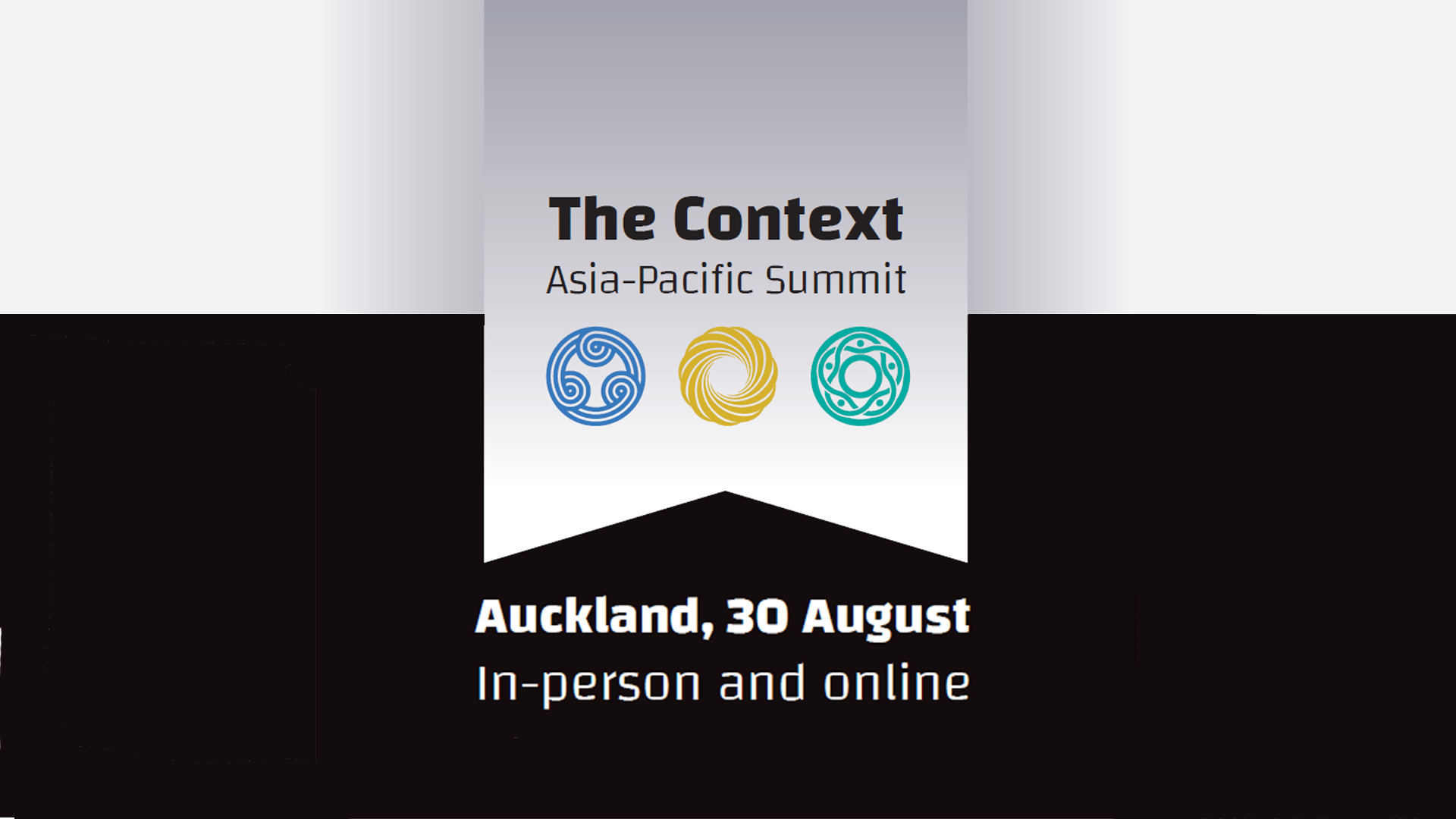Asia-Pacific business summit to unleash Kiwi expertise in new markets

26 August 2022
This Tuesday, the Centres of Asia-Pacific Excellence (CAPEs) will hold its first summit, at the University of Auckland. The Context: Asia-Pacific Summit will focus on equipping New Zealand businesses with the tools to thrive in new markets, setting a course for a sustainable, inclusive, and profitable future.
The Summit’s impressive line-up of guest speakers includes experts in international business, Māori and indigenous business, talent development, consumer engagement, and tech. Speakers will share context, lessons learned, and advice on how to cultivate connections and success in business in the Asia-Pacific market.
Director of the North Asia CAPE, Charlie Gao says, “As we navigate current challenges, New Zealand firms must keep their sights on long-term global opportunities, and so the CAPEs are focused on helping businesses to build understanding and forge strong relationships across the Asia-Pacific that will help them achieve sustainable growth.”
The Summit includes a strong emphasis on how Māori and indigenous businesses can venture into international markets in ways that reinforce their own identities and values, while at the same time acknowledging the Asia-Pacific cultures they’re working with.
Summit attendees will hear from Sarah Rennie and Kim Tuaine from Oyster Workshop, a business consultancy specialising in supporting Māori and Pacific entrepreneurs and particularly creative and culturally-based businesses. “Māori and Pacific businesses have a purpose that connects them to a set of wider obligations to people and planet and culture is a central driver in their business. In a time where increasingly people are seeking meaning and connection through their consumer choices, we see that the culturefirst approach of Māori and Pacific businesses means that they are well-positioned to take up the opportunity that exporting presents, without compromising their values and beliefs. Through our work we believe the journey is a safer one, and offerings are more compelling to international markets through a collective approach,” says Tuaine.
Dr. Dana L. Ott, a senior lecturer in international management at the University of Otago, will share insights on cultural intelligence and the opportunities for improvement. “Emotional intelligence only goes so far when it comes to cross-cultural interactions,” says Dr. Ott. “Organisations looking to succeed in the Asia-Pacific will benefit from developing the cultural intelligence of their people. Fortunately there are ways to do so without necessarily jumping on a plane.”
Professor Natasha Hamilton-Hart from the University of Auckland’s Asia Institute will emphasise the need for businesses to invest in understanding the business environments that they are engaging with. “Any business has much to gain from understanding the various incentives and constraints in Asia, where business eco-systems are diverse and different from at home in New Zealand,” says Professor Hamilton-Hart.
Attendees at the summit can expect to hear not just from academics, but also business leaders who have experience in fostering connections needed to internationalise.
Katy Bluett, Establishment Director of Future Food Aotearoa and a keynote speaker at the Summit, will talk on the opportunity for New Zealand’s food exporters in the Asia-Pacific region. Bluett says that, “Now is the time to define a food strategy that builds on our farming legacy and seeds new business models and innovation opportunities fit for the future. The AsiaPacific region will be key to bringing this to life.”
On top of this, Summit attendees will also hear about strategies for businesses looking to harness the work they already do, in the sustainability and social purpose spaces. Attendees will learn how they can use this work to engage customers and grow their businesses.







